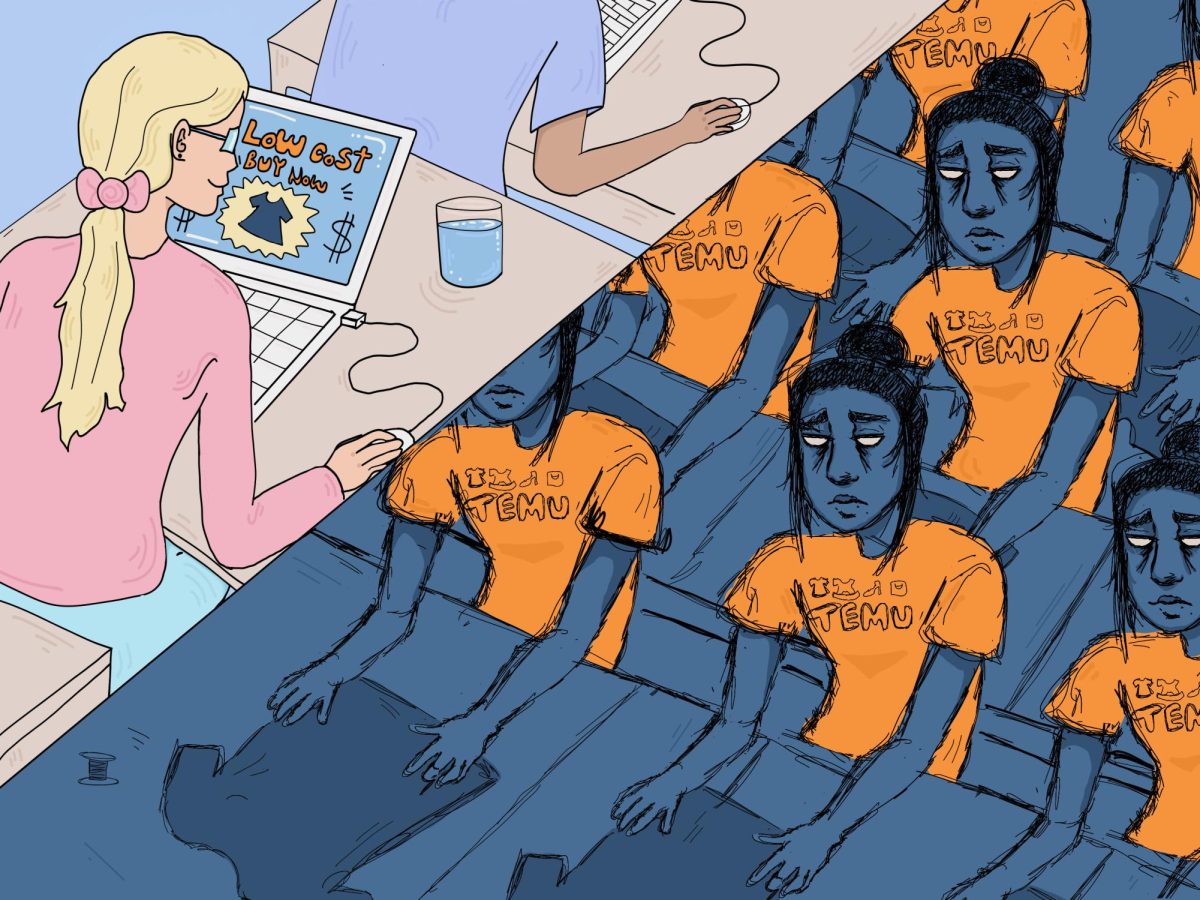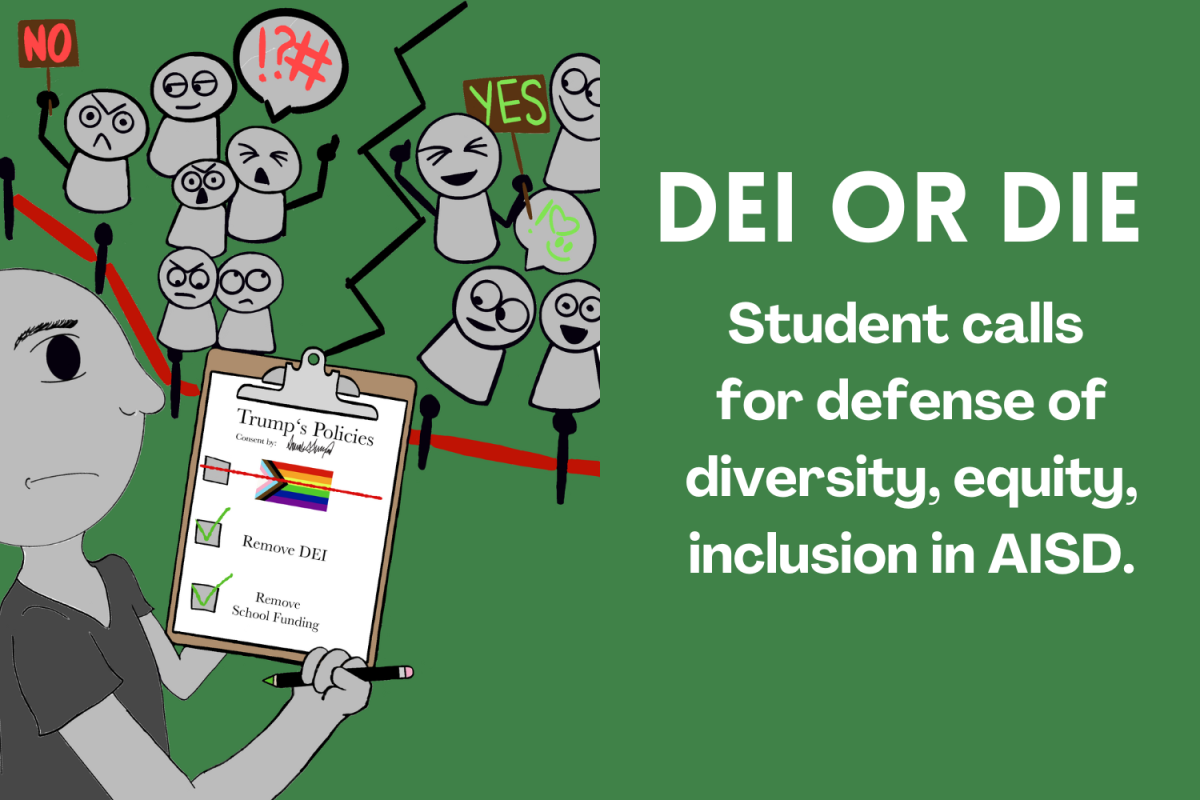January and February are natural times for Americans to reflect on all the money they spent during the holiday season.
For some, it might feel like a financial hangover after a crazy shopping spree in which the thrill of getting a good deal made them spend more than they should have. While our initial impulse to buy gifts for others during the holiday season is well-intentioned, there are some negative consequences to our addiction to online discount shopping that need to be evaluated.
According to the Census Bureau’s Monthly Retail Trade Report, Americans spent an estimated $531.8 billion in the retail sector in December 2022. That spending followed an estimated $486.2 billion spent in the same sector in November, adjusted for inflation, as the holiday season ramped up. Does all of this spending go unnoticed by the public? The consensus is no. I have heard many comments acknowledging the cheapness of certain gifts or decorations, but we should question: do we all realize the reasons for these low prices?
There are many reasons that prices may drop during the holiday season, especially for goods purchased online via platforms such as Temu, TikTok Shop, and Shein. Even the hugely popular and seemingly more ethical brand, Amazon, has its flaws that leave workers striking for better pay and working conditions.
As detailed in an article by the congressional news publication The Hill, this is the fourth year of such protests against Amazon. Workers have been trying to stop the company’s anti-union efforts and have many other important demands as well. Detailed in a four-page long document, the workers participating in this protest demand that the company gives back to society by ending partnerships with police forces and immigration authorities, guaranteeing user privacy, and operating sustainably by committing to zero emissions by the year 2030.
There are many other demands involving job security and workers’ rights, but looking at these demands makes clear to the public that they are more motivated by making money than doing right. I wonder how often people who regularly buy from Amazon look at these workers’ demands and question the morality of ordering from a company whose working conditions look so bleak, and whose money, even partially, funds untrue advertisements or contributes to organizations that promote hate.
There are many reasons that it is convenient for people to buy from Amazon, but that does not mean that it is better than buying from a store or online directly from whoever made it.
With newly popular fast fashion brands such as Shein, there are similar problems. In addition to the widely known worker safety problems for those working for the company, Shein is also accused of stealing many artists’ designs and marketing them as original to meet the demand for thousands of new items every week.
In addition to this, Shein has recently been hit with RICO charges, which were created to persecute organized crime. “Shein has become rich by committing individual infringements over and over again, as part of a long and continuous pattern of racketeering, which shows no sign of abating,” the filing says. In short, this means there is evidence that Shein has been caught doing illegal business practices. Another new popular discount online retailer that operates with questionable and likely unethical practices is Temu, which debuted in America in September 2022.
Sales for the company took off after it aired Super Bowl ads in February 2023, promoting the slogan “Shop like a billionaire.” Business analysts believe that Temu’s discounted prices are part of the company’s long-term plan to grow its customer base in America before introducing “social shopping” and “group buying” in which the company offers quantity discounts to groups of buyers. These kinds of discounting techniques have proven effective in China, and will likely only increase sales of the cheap products that are suspected to be produced by forced labor.
Congressional reports detail concern about Temu and the high possibility of it using forced labor in the production of the items it sells. In the report, Temu admits that it “conducts no audits and reports no compliance system to affirmatively examine” whether its suppliers are observing the U.S. forced labor law. This is a long way of saying they don’t prevent forced labor in their suppliers’ factories. Temu makes an average of $1.5 million daily through the use of these practices. This should concern more people. This is astronomical to keep up and the only way they continue to do that is with unethical practices in the process of manufacturing, shipping, and distributing the unoriginal products they sell.
Sadly, using extortion to get people to make these cheaply sold products is often overlooked. There are examples of this in our everyday lives, even where it might make us uncomfortable to admit that truth: in the buildings we live and work in, in the food we eat, and even in the phones and electronics we use daily. In Congo, there has been very little coverage of the violence and extortion the Congolese people face for mining minerals like cobalt and copper in dangerous conditions, leaving enslaved workers in these mines sick or dead- all for some rocks. In America, we are taught about the struggles of immigrant farm workers as if it were all in the past, but people are still struggling today. Similar practices continue all over the world and it has a severe environmental effect. Stripping land of its minerals, building dams where natural floods restored the land for thousands of years, and abandoning farms and families when it comes to natural disasters.
These are all results of people utilizing the land for profit and disregarding the consequences that affect people globally. I believe that people need to realize that ruthless discount online retailers do not care for the people they extort, the environment they destroy, or the customers they scam.
At the end of the day, a company gets that way in the first place because of the greed of those who own and run the company. The decisions they make that lead to these terrible working conditions and unlawful violations result from budget cuts and more focus on profit than ethical trade and business practices. This is not uncommon but when a company is as big as many online businesses are, it is bound to lead to danger.
Most working people in America do not have the time nor the expendable fortune and resources to keep up with these changes because wages don’t change to accommodate the economy. Once student loan forgiveness ends, people will be back to paying it and having even less to spend than before, and that will also affect how companies both online and offline continue to sell. During the Great Recession, so many examples of this could be seen in advertising and pop culture. The influence of the economy and current events will always also affect how we buy.
Ultimately, I feel that a huge reason for this disconnect from these conditions is the desensitization we experience buying things through a screen or in a department store. The very word “consumers” — the people who keep our economy afloat — is strangely impersonal and keeps you thinking about people as categories. Taking away the interaction with someone who made or is selling you something makes for a less personal experience. In stores, people used to interact with and know the people who made their food, blankets, clothes, etc.
Now, in a world where goods are marketed heavily by bigger brands, you don’t see what happens where your things are made. It’s a highly depersonalized experience and why I don’t find shopping appealing in general. It might be an act of good faith to buy from locals or make gifts this year. Start a resolution to stop perpetuating these working conditions and start buying locally.










